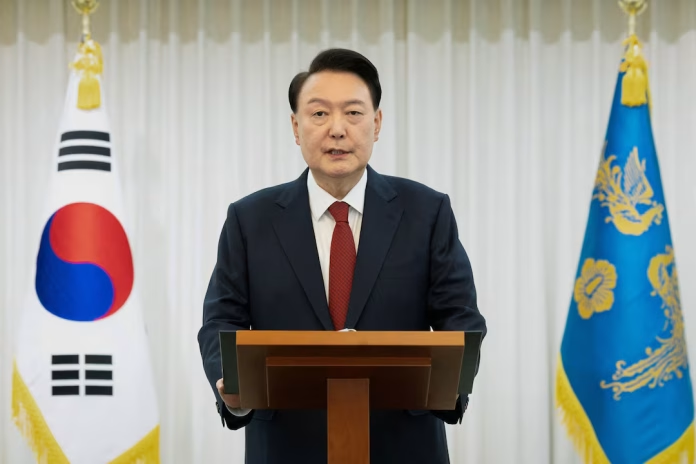The 11th hearing of South Korean President Yoon Suk Yeol’s impeachment trial is set for 25th February. Both the National Assembly and President Yoon’s defence team are preparing their final arguments. They will address the charges of insurrection and abuse of power.
On 22nd February, the National Assembly’s legal team met to plan for the hearing. Their main focus will be on President Yoon’s martial law declaration on 3rd December. They argue it was illegal and unconstitutional. They will also discuss the orders he allegedly gave during this period.
Yoon defence: A response to allegations
President Yoon’s defence team argues that the martial law declaration was within his rights. They claim it was issued as a “warning” to the opposition. They also argue that the opposition’s impeachment attempts and budget manipulation pushed the country to a national emergency. Therefore, the defence will argue that his actions were necessary to protect the country.
The main issue in the trial is whether President Yoon’s actions on 3rd December were legitimate. Another key point is whether he ordered the arrest of lawmakers and political opponents. The National Assembly claims he did, while President Yoon denies it.
Testimonies regarding the arrest orders
On 20th February, the Constitutional Court heard testimony about the alleged arrest orders. Mr Hong Jang-won, the former first deputy director of the National Intelligence Service (NIS), claimed he received these orders and documented them. He returned to court to clarify his earlier testimony, especially about the timing and details of his notes.
President Yoon’s lawyers challenged Mr Hong’s testimony. They questioned why he hadn’t submitted the original memo to prosecutors. They also suggested that Mr Hong tried to give the document to the opposition Democratic Party of Korea. Additionally, lawyer Yun Gap-geun asked whether the aide who helped write the memo had personal ties to Han Dong-hoon. Mr Hong responded that he did not know the aide’s connections.
The alleged order to break into Parliament
Former Capital Defence Commander Lee Jin-woo testified that President Yoon told him to “break down the door to Parliament” and “drag the lawmakers out.” However, Mr Lee later testified that he could not remember making this statement. As a result, the credibility of his testimony is questioned.
President Yoon denies issuing such orders. He has stated that “nothing happened” and compared the trial to “chasing the shadow of the moon floating on a lake.”
Yoon military mobilisation and the martial law decree
During the martial law period, approximately 1,500 South Korean troops surrounded the National Assembly. President Yoon claims that their deployment was to maintain order, not to block Parliament. He insists that the military was not used to restrict the legislative body.
The martial law decree prohibited political activities, including those of the National Assembly. However, the decree did not give the President authority to limit Parliament’s functions. This will be a key point in the trial.
President Yoon argues that the martial law was meant to last no more than half a day. He claims the decree was a formality and that Defence Minister Kim Yong-hyun mistakenly added a problematic clause about Parliament. Yoon denies any intent to use deadly force.
Live ammunition was provided to the mobilised troops, but it was not distributed to individual soldiers. The martial law was lifted about six hours after its declaration. The National Assembly requested the removal of martial law at 1am on 3rd December. President Yoon agreed to lift it at 4:20am, over three hours later.
The final hearing and what comes next
The 11th hearing will begin at 2pm on 25th February. Acting Chief Judge Moon Hyung-bae has confirmed that there will be no time limits for final arguments. Afterward, the eight justices will deliberate on whether to uphold President Yoon’s impeachment.
The court is expected to reach a decision within two weeks. In past cases, the Constitutional Court took 14 and 11 days to reach a final decision after the last hearing.
Public reaction and potential outcomes
Supporters of President Yoon and the ruling party have criticised Chief Justice Moon. Protesters have held demonstrations outside his home, and some lawmakers accuse him of bias in favour of the opposition.
If the court upholds the impeachment, South Korea will hold a presidential election within 60 days. If the court rejects the impeachment, President Yoon will continue in office until his term ends on 9th May 2027.
